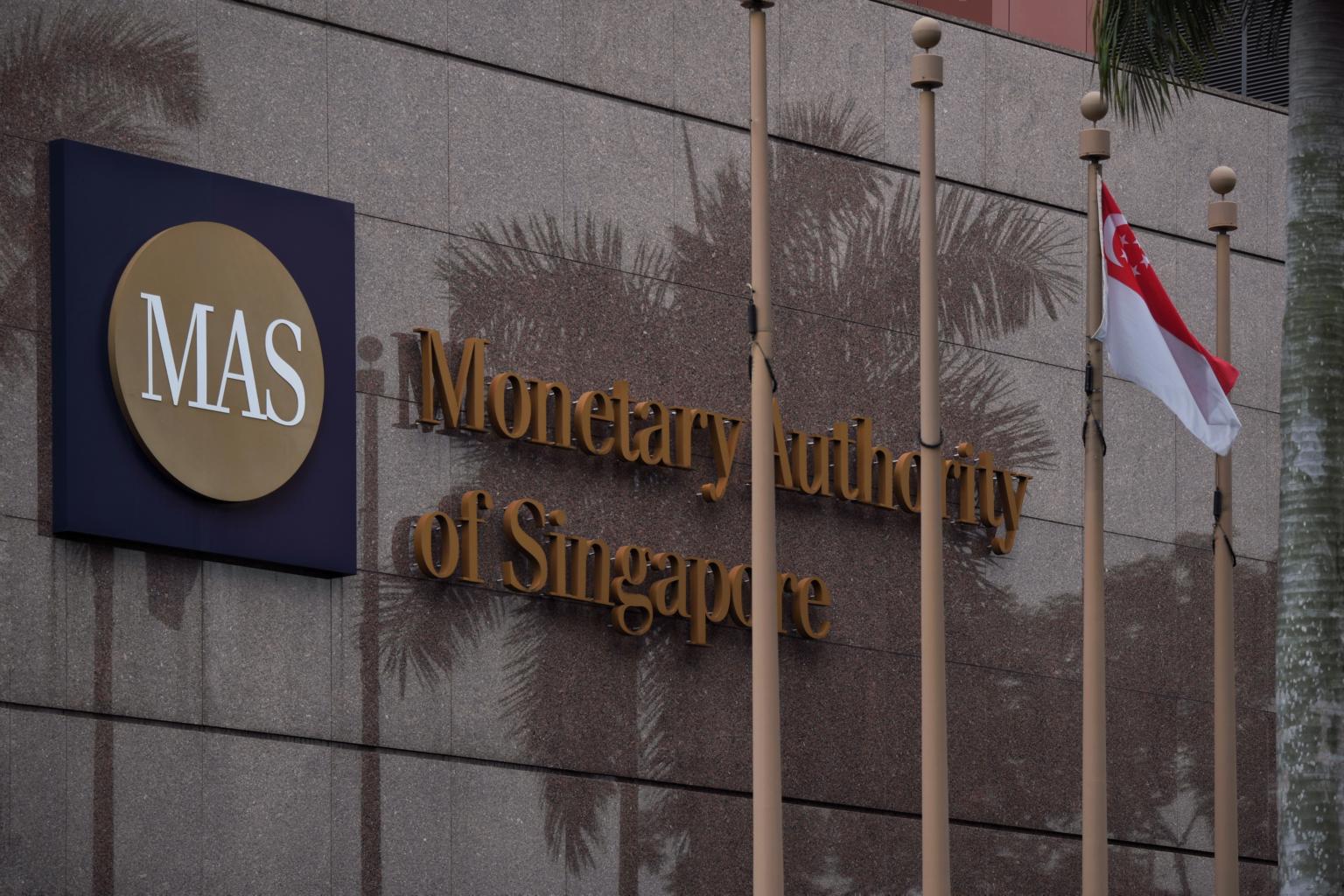MAS expands industry steering committee mandate to drive Sibor transition
Sign up now: Get ST's newsletters delivered to your inbox

Sibor is a key interest rate benchmark in Singapore that is widely used in retail mortgages and corporate loans.
PHOTO: ST FILE
Raphael Lim
Follow topic:
SINGAPORE (THE BUSINESS TIMES) - The Monetary Authority of Singapore (MAS) is expanding the mandate of the steering committee that is overseeing the Swap Offer Rate (SOR) transition to Singapore Overnight Rate Average (Sora), it said on Friday (Dec 11).
The Steering Committee for SOR Transition to Sora's (SC-STS) mandate will be expanded to enable it to oversee the interest rate benchmark transition from the Singapore Interbank Offer Rate (Sibor) to Sora.
This follows a joint industry report published on Friday announcing the discontinuation of the remaining Sibor tenors in phases over the next four years. The six-month Sibor will be discontinued three months after the six-month SOR is discontinued, while the widely-used one-month and three-month Sibor will be discontinued by end-2024.
In July this year, the Association of Banks in Singapore (ABS), the Singapore Foreign Exchange Market Committee and the SC-STS published recommendations to discontinue Sibor and shift to the use of Sora as the main interest rate benchmark for Singapore dollar (SGD) financial markets.
Sibor is a key interest rate benchmark in Singapore that is widely used in retail mortgages and corporate loans. Sora is published by MAS, and is based on the average rate of unsecured overnight interbank SGD transactions brokered in Singapore.
On Friday, the response to feedback on July's recommendations was published, following feedback from 74 respondents, comprising 48 banks and 26 non-bank respondents.
Most respondents agreed for the Sibor transition to take place after the industry has substantially completed the SOR-to-Sora transition in 2021, the report noted.
In relation to the six-month Sibor, most respondents agreed with the proposal to discontinue it when, or shortly after, the six-month SOR is discontinued after end-2021, the report said.
Respondents cited the low usage and the lack of underlying activity as key reasons to discontinue the six-month Sibor before the one-month and three-month Sibor.
For the one-month and three-month Sibor, the report noted that most respondents agreed with the proposal to discontinue these tenors three to four years from the date of announcement. This would provide time for shorter-dated corporate loan contracts to mature, and for longer-dated retail and SME (small and medium-sized enterprise) mortgage loans to exit their lock-in periods.
Some had proposed for discontinuation of the tenors only in five years or more, due to its usage in loans for buildings under construction (BUC loans), which may have some loans being disbursed after four years, due to Covid-19 delays.
However, it was assessed that the potential complications from partially disbursed Sibor BUC loans can be managed, and that it was not practical to premise the discontinuation on full disbursement of all Sibor BUC loans, given uncertainty of when this may occur.
The report encouraged bank lenders to avoid adding to the stock of Sibor BUC loans, which will give rise to downstream transition implications.
"Where it remains necessary to offer such loans, banks should clearly highlight the implications if the loan is not fully disbursed when Sibor is discontinued (including the circumstances under which refinancing penalty fees will apply)," the report said.
The report added: "Given significant overlap in the areas of work for the Sibor-to-Sora transition and the on-going SOR-to-Sora transition, MAS has expanded the terms of reference of the SC-STS to include the Sibor-to-Sora transition."
With the expanded mandate, the committee will be renamed as the Steering Committee for SOR & Sibor Transition to Sora. It will also be responsible for providing strategic direction on Sibor transition to Sora, and oversee its smooth implementation.
The SC-STS was established by MAS in August 2019 and comprises senior representatives from key banks in Singapore, relevant industry associations and MAS. It is chaired by Mr Samuel Tsien, group chief executive officer of OCBC and chairman of ABS.
"Having only one committee to oversee the transition of both existing interest rate benchmarks to Sora will ensure a more efficient and effective outcome to support the development of Sora and lead to a deeper and more robust SGD interest rate market," Mr Tsien said in a statement.
SC-STS plans to issue market guidance in 2021 on approaches for the SOR to Sora transition, and will likewise look to provide market guidance in 2022/2023 on possible approaches for the transition of legacy one-month and three-month Sibor contracts, the report on Friday said.
The steering committee also plans to provide guidance in the first half of next year on an appropriate timeline to cease usage of Sibor in new contracts.
The report added: "SC-STS encourages market participants to shift away from usage of Sibor as soon as possible, to reduce reliance on a benchmark that will be discontinued, and to contribute to the deepening of new Sora markets."

